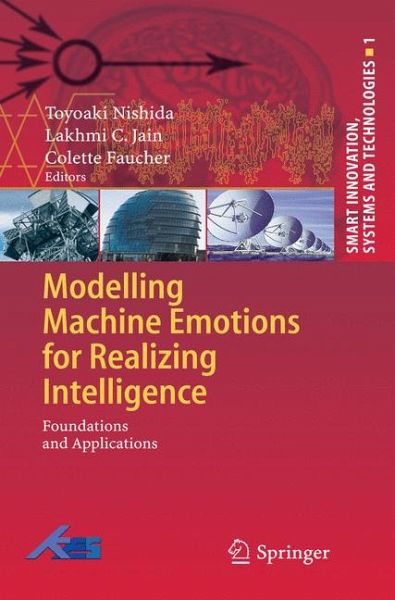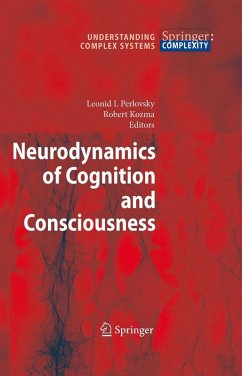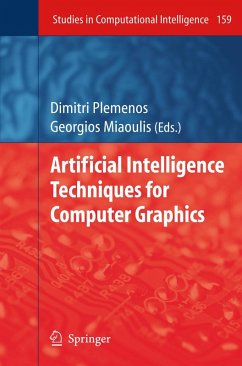
Modelling Machine Emotions for Realizing Intelligence (eBook, PDF)
Foundations and Applications
Redaktion: Nishida, Toyoaki; Faucher, Colette
Versandkostenfrei!
Sofort per Download lieferbar
112,95 €
inkl. MwSt.
Weitere Ausgaben:

PAYBACK Punkte
56 °P sammeln!
Emotion connects the thought to the body, which is a magnificent biological - vice for sensing and affecting the world. The thought controls the body through emotions. The body affects the thought through emotions. Through this mec- nism, the thought allows the agent to behave intelligently in the complex world filled with a huge amount of dynamic information. The emotion maps a flux of information into a space which the agent is familiar with, enabling her/him to associate ongoing events with past experiences which help to reduce complexity by providing with a nominal solution. Recent finding...
Emotion connects the thought to the body, which is a magnificent biological - vice for sensing and affecting the world. The thought controls the body through emotions. The body affects the thought through emotions. Through this mec- nism, the thought allows the agent to behave intelligently in the complex world filled with a huge amount of dynamic information. The emotion maps a flux of information into a space which the agent is familiar with, enabling her/him to associate ongoing events with past experiences which help to reduce complexity by providing with a nominal solution. Recent findings in brain science suggest that mirror neurons map visual signals into motor signals for the body. This mechanism might permit one to experience the emotion of the other agent just by feeling the motor signals caused by mirror neurons as a result of visual stimuli caused by the other agent's emotional beh- iors. In particular, it might play a significant role in invoking empathy in a social situation. It may not be hard to think about what might happen to emotion-less machines. The emotion-less machines may not be able to accumulate experiences to avoid serious failures. They may not be able to communicate with the humans in an empathetic way.
Dieser Download kann aus rechtlichen Gründen nur mit Rechnungsadresse in A, B, BG, CY, CZ, D, DK, EW, E, FIN, F, GR, HR, H, IRL, I, LT, L, LR, M, NL, PL, P, R, S, SLO, SK ausgeliefert werden.












